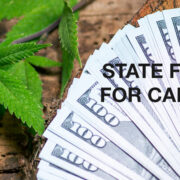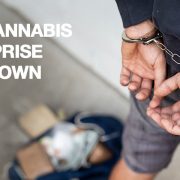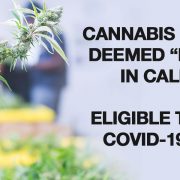Governor Newsom’s California Comeback Plan Proposes Millions in Funding for Cannabis
On May 14, 2021 the California Bureau of Cannabis Control issued a press release announcing Governor Newsom’s “California Comeback Plan” which proposes $100 million in grant funding for local governments to complete environmental studies, license reviews, and mitigate environmental impacts. The proposal supports a broader effort to transition cannabis businesses into the regulated market and to reduce barriers to entry for small businesses. The California Comeback Plan also proposes a Deputy Director of Equity and Inclusion to lead state efforts to address the impacts of the War on Drugs and allocates nearly $630 million in cannabis tax funds to public health, environmental protection, and public safety initiatives.
Here is an overview of cannabis proposals in the California Comeback Plan:
Local Assistance Grant Program and Transition of Provisional Licenses
Approximately 82% of California’s cannabis licensees are provisionally licensed. The Local Jurisdiction Assistance Grant Program targets jurisdictions that have high numbers of provisional licensees across the supply chain, many of which were early adopters and are transitioning larger populations of legacy and equity operators into the regulated market. Funds are intended to aid locals in more expeditiously reviewing provisional licensee local requirements, notably those related to the California Environmental Quality Act, and can be passed through to licensees for things such as mitigation measures, including those related to water conservation. Once these requirements are met, the state can more rapidly transition provisional licensees to annual state licenses.
“This grant funding aims to serve local governments and a significant portion of the provisional license population, including a number of small businesses and equity operators,” said Nicole Elliott, Governor Newsom’s Senior Advisor on Cannabis. “We are committed to maintaining stability across the cannabis supply chain, supporting our local partners, and transitioning provisional licenses into annual licensure more swiftly, without sacrificing California’s environmental commitments.”
The funding that will be available to local jurisdictions is calculated based on provisional licenses issued by the state, and is proposed to be allocated as follows:
- Category 1 – 25%: top 8 jurisdictions allowing cannabis cultivation.
- Category 2 – 25%: top 8 jurisdictions allowing manufacturing and the top 8 jurisdictions allowing all other cannabis activities, except events.
- Category 3 – 50%: additional funding for jurisdictions that qualify for Category 1 or 2 and are also implementing local equity programs.
Under current statute, the provisional license program will sunset on January 1, 2022. The Governor’s Plan proposes allowing provisional licenses to be issued until June 30, 2022, makes explicit environmental compliance requirements necessary to attain and maintain a provisional license, mandates the Department to specify through regulation what progress is required to maintain a provisional license, and removes the sunset date, thereby allowing a provisional license to be maintained so long as the applicant is making measurable progress toward achieving annual licensure.
Deputy Director of Equity and Inclusion
The California Comeback Plan proposes an additional position within the Department of Cannabis Control – a Deputy Director of Equity and Inclusion – to serve as the lead on all matters of the Department pertaining to the implementation of the California Cannabis Equity Act. This individual would be the Department liaison for local equity programs created to support and reduce barriers to entry for those negatively impacted by the War on Drugs and would also work directly with the Department Director to further incorporate equity and inclusivity into policies and operational activities throughout the Department.
Sustainable California Grown Cannabis Pilot Program
The California Comeback Plan proposes $9 million in funding for a Sustainable California Grown Cannabis pilot program which will provide funding to incentivize licensed outdoor cannabis growers to participate in the collection of data to benchmark best practices that reduce the environmental impact of cannabis water and energy use; pest management and fertilizer practices; and, to enhance soil health. The purpose of the pilot program is to establish science-based data for the future inclusion of cannabis in current and future state and national voluntary programs to advance environmental stewardship and to develop and advance Best Management Practices for Sustainable Cannabis Growing.
Updated Tax Allocations
The California Comeback Plan estimates $629.1 million in cannabis tax funding will be available for public health, environmental protection, and public safety initiatives, a 41.9% increase from the Governor’s Budget estimates in January. The funding will be allocated as follows:
- Education, prevention, and treatment of youth substance use disorders and school retention — 60% ($377.5 million).
- Clean-up, remediation, and enforcement of environmental impacts created by illegal cannabis cultivation — 20% ($125.8 million).
- Public safety-related activities — 20% ($125.8 million).
Consolidation Of California Cannabis Agencies
The Department of Cannabis Control will be formed on July 1, 2021, pending approval by the Legislature, and will combine the cannabis licensing and regulatory functions currently performed by the Department of Consumer Affairs’ Bureau of Cannabis Control, the California Department of Food and Agriculture’s CalCannabis Cultivation Licensing Division, and the California Department of Public Health’s Manufactured Cannabis Safety Branch.
Developments like this contradict the basis of classification of cannabis under Federal law which makes cannabis illegal.
The Anti-Federal U.S. Climate
The Federal Controlled Substances Act (“CSA”) 21 U.S.C. § 812 classifies marijuana as a Schedule 1 substance with a high potential for abuse, no currently accepted medical use in treatment, and lack of accepted safety for use under medical supervision. Although you can still face federal criminal charges for using, growing, or selling weed in a manner that is completely lawful under California law, the federal authorities in the past have pulled back from targeting individuals and businesses engaged in medical marijuana activities. This pull back came from Department of Justice (“DOJ”) Safe Harbor Guidelines issued in 2013 under what is known as the “Cole Memo”.
The Cole Memo included eight factors for prosecutors to look at in deciding whether to charge a medical marijuana business with violating the Federal law:
- Does the business allow minors to gain access to marijuana?
- Is revenue from the business funding criminal activities or gangs?
- Is the marijuana being diverted to other states?
- Is the legitimate medical marijuana business being used as a cover or pretext for the traffic of other drugs or other criminal enterprises?
- Are violence or firearms being used in the cultivation and distribution of marijuana?
- Does the business contribute to drugged driving or other adverse public health issues?
- Is marijuana being grown on public lands or in a way that jeopardizes the environment or public safety?
- Is marijuana being used on federal property?
Since 2013, these guidelines provided a level of certainty to the marijuana industry as to what point could you be crossing the line with the Federal government. But on January 4, 2018, then Attorney General Jeff Sessions revoked the Cole Memo. Now U.S. Attorneys in the local offices throughout the country retain broad prosecutorial discretion as to whether to prosecute cannabis businesses under federal law even though the state that these businesses operate in have legalized some form of marijuana.
What Should You Do?
Given the illegal status of cannabis under Federal law you need to protect yourself and your marijuana business from all challenges created by the U.S. government. Although cannabis is legal in California, that is not enough to protect you and for sure you want to take advantage of any assistance or support offered by the State. Be proactive and engage an experienced Cannabis Tax Attorney in your area. Let the tax attorneys of the Law Offices Of Jeffrey B. Kahn, P.C. located in Orange County, Inland Empire (Ontario and Palm Springs) and other California locations protect you and maximize your net profits. And if you are involved in crypto currency, check out what a bitcoin tax attorney can do for you.











 Follow
Follow Follow
Follow